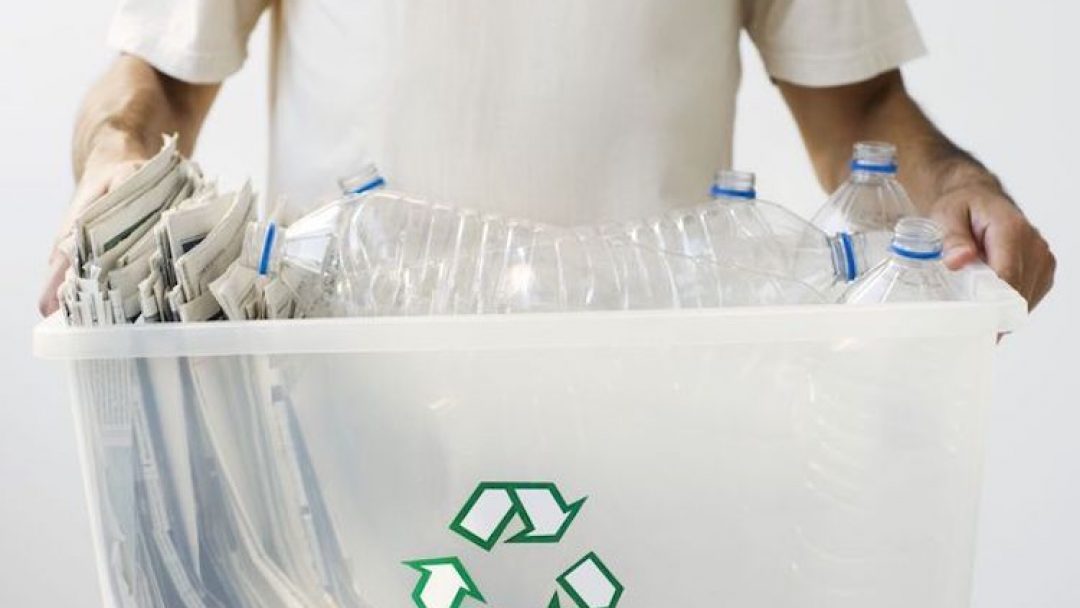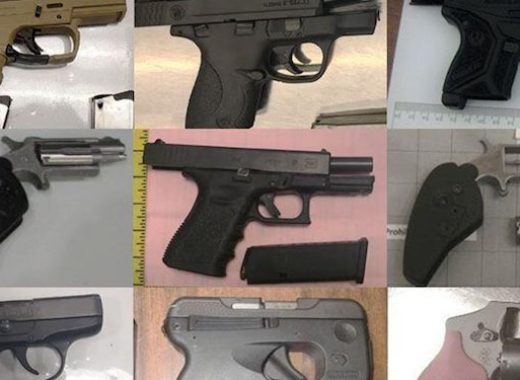The average American produces about 4.4 pounds of garbage each day according to the Environmental Protection Agency. Now that summer is upon us, there can be some seasonal items that may open up recycling questions. Waste Management has a friendly reminder on what is and is not considered recyclable.
Billy Faultner, Waste Management district manager, says there are many common mistakes made especially in during the summer months.
“The common things we see come through all the time are garden hoses, the plastic floating devices like a raft, anything like that,” he said. “Those come through, pretty much anything and everything we see it come through.” Faultner says not only are these items not recyclable, but they can also clog up or damage the recycling processing machines.
Paper plates, BBQ equipment, plastic beach toys, ceramic pots, charcoal, and are all on the “don’t list” when it comes to recycling.
But there are plenty of common summer items that are recyclable.
“Any detergent bottles, aluminum cans, clean cardboard paper — all of that is completely recyclable,” he said.
It is a good reminder that if you need help figuring out if a product is recyclable, look on the bottom for that familiar recycle symbol.
“You can always check the bottom on a plastic, you can check the bottom and see if it has a number and the little recycle triangle and if it’s got that, that’s something we can process,” he said.
During the summer months, we know the importance of keeping your family protected from harmful UV rays, but don’t forget to take a look at which sunscreen cans and bottles are recyclable before throwing them out. Most metal sunscreen bottles are made from aluminum, which is a recyclable material. Even with their plastic tops, used sunscreen bottles can be tossed in with your other recyclables.Another helpful summer recycling tip is while you are staying hydrated, use a reusable water bottle. That alone will help save hundreds of pounds of plastic waste.
Here’s is a comprehensive reminder list on what you should be recycled, and everything you shouldn’t be.
DO: Plastic bottles, jugs, and jars
A good rule of thumb is that almost all plastic bottles, jugs, and jars, except for yogurt or pudding containers, are generally made from recycle-ready plastics. Just give them a good rinse and they’re good to go.
DO: Most of that junk mail you receive
And most other clean (no food residue) paper goods of the glossy, non-glossy, construction, and envelope varieties. And, while it’s still a good idea to remove the clear window panes from envelopes, these days most are actually made from cellulose, which can safely be recycled with paper.
DO: Aluminum, steel, and tin cans
Collect all of those backyard BBQ aluminum cans, they recycle like a dream, but a good tip is NOT to crush them before they hit the bin. Why? Crushed cans can sometimes miss the sorter and end up in the landfill. Simply wash them and put them in the bin.
DO: Anything made from glass
Just like aluminum, amber, emerald, and clear glass have a near-infinite recycling life.
MAYBE: Plastic bottle caps
Sure, the bottle can take a fantastic voyage to the recycling center, but its cap? Think again. Plastic caps are generally made from different plastic than the bottle, which isn’t recycled by all municipalities. Most bottle caps are made from plastic #5, so it’s worth checking if your recycling system will accept them — some do, some don’t!
MAYBE: Old Mattresses
Some municipalities will recycle your used mattress for free or a small fee, but donation options are always an option…check out local homeless shelters and Craigslist.
DON’T: Shopping receipts
Most receipts are made from thermal paper and contain BPA (Bisphenol A), which should not enter the recycling stream. Some receipts can be composted, but it’s best practice to ask for no receipt or an electronic version whenever possible. Want to know if your receipt is made from un-recyclable thermal paper? If it’s shiny and smooth, then it is, and should likely go in the trash.
DON’T: Plastic shopping and zip-lock bags
Zip-lock bags and plastic grocery-type bags are not widely recycled by regular city programs due to them getting caught in the sorting gears. But don’t let that sway you, they can be recycled at specific locations, which are usually grocery stores. We recommend reusing them as much as possible or switching over to and taking reusable shopping bags with you to the grocery store.
DON’T: Anything smaller than a Post-It
Gum wrappers, shredded paper, aluminum foil, scrap paper, etc. They are simply too small to be picked up by traditional sorters and can end up as contamination. For small pieces of paper, consider composting.
DON’T: Soft plastic packaging like candy wrappers, chip packets, and salad and frozen vegetable bags
Usually if the bag contained produce such as bagged salads or veggies and also snacks like think chips, cookies or candy, if it’s soft enough to crush in your hand, there is a strong chance it is not recyclable.
DON’T: Paper with metallic, glittery, or velvety accents
Most wrapping paper, gift bags, greeting cards, and anything else with these fancy adornments. Reuse these as much as possible, and when they’ve exhausted their re-gifting lifespan, save for art projects but don’t toss them in the recycle bin.
DON’T: Food-contaminated containers, frozen food containers and most disposable coffee cups
That greasy pizza box is no go into the recycle bin. Same goes for Chinese takeout containers. If the container is straight cardboard or paper with no plastic or Styrofoam coatings, it can be composted. If it’s plastic, it can be cleaned and reused or recycled. The items that have plasticky coatings cannot safely enter the recycling stream, so avoid these as much as possible by bringing your own.
DON’T: Old photos
Perhaps you are ready to purge the old snap of your ex, but know that most recycling systems cannot handle the chemicals that are in traditional photo development. Those need to be filed in the trash can!
DON’T: Styrofoam
Styrofoam-coated anything, also known as foamed polystyrene or plastic #6 is a big no! Styrofoam can sit in a landfill for centuries. Some specific special systems can handle this material, but they are not very common. Simple rule of thumb is to refuse packing peanuts, coated cups and containers, and other foamy items.








